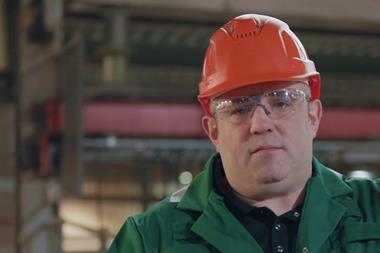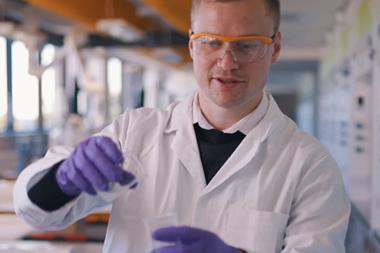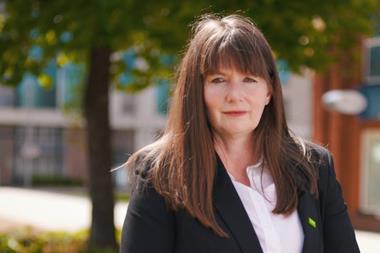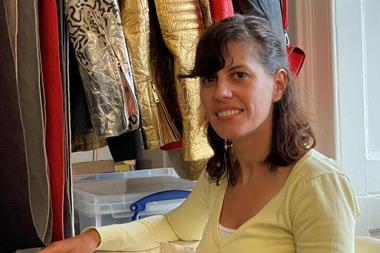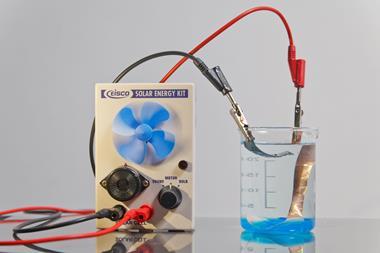Mae’r proffil hon ar gael yn Gymraeg
Dilynwch i gael y fersiwn Gymraeg
Everything you need to know
-
- Salary range: £40k+
- Minimum qualifications: PhD or equivalent experience
- Skills required: Communication, research skills, teaching skills, problem-solving skills, collaboration, writing skills, motivation, time-management skills, project-management skills, data analysis
- Training required: Training on how to use specialist laboratory equipment or software required in research and data analysis
- Work–life balance: Academic research roles might involve working flexible hours and working long hours and at weekends. In addition to carrying out research, many academic roles involve attending conferences, teaching lectures and writing grant applications, plus administrative work.
- Career progression: There may be the opportunity to progress to a senior role such as Head of Department.
- Locations: Find related work experience positions using our map of employers
More profiles like Ian's
What does a professor in chemistry and an enterprise, partnerships and innovation lead do?
As well as teaching students at Swansea University, I also try and figure out how to meet net zero targets and mitigate climate change. In recent years, this has involved working on buildings that generate their own power and use any excess power to do useful things such as powering electric transport.
How does your work affect the world around us?
My specific work is on coating technologies that can generate power – for example, roof coatings that produce electricity from the sun. This is used to power the building and any excess can be stored in batteries and used for useful things. In the UK, that typically means powering electric transport, but I also work in India where it’s used to boost agricultural income in poor communities and in South Africa where it’s used to improve access to sanitation
What is your typical day like?
My day is varied! Depending on the time of year, a typical day might involve teaching, talking to companies about support for a new project and understanding their needs and challenges, making funding decisions, reporting on a project’s progress and talking to teams around the world on how to rapidly overcome an obstacle to our work. I might also have a conversation with a local council or government about their priorities and hopefully there’s some research time in there too. Yes – that’s one day!
What do you like most about your job?
The people I work with, the variation in things I get involved in (everything from Formula 1 to sanitation) and, most of all, the realisation that it’s bigger than me. Most people want the chance to improve things and leave the world a little bit better than how they found it. Teamwork is key – I’m expendable, we all are. No one is singlehandedly out there fixing problems. I’m fortunate to be part of a team that cares about the well-being of future generations and, together, we try to do our part.
How did you get your job?
I did an MChem with a year in industry in a sandpaper factory as a resin chemist and saw how even the most overlooked product was packed full of science. The year in industry shaped my path and the master’s project confirmed my love of academic research. I then knew I wanted to work on the interface of industry and academia.
After this, I did a sponsored EngD which includes a PhD-style research project, thesis and viva on an industrial challenge, with an extra year for taught modules, both technical and covering things like management and finance. The industrial challenge was looking at how we can cure (toughen/harden) coatings quicker and that led to thinking about how we can produce materials for renewable energy in the same way. This broadened my horizons and gave me a wider skillset than just the research alone. It’s enabled me to contextualise my work and present convincing arguments and business cases for change.
The next big eye-opener came from talking to and visiting people who are living at the front end of global challenges. This inspired me to realise the part that chemical scientists can play when we consider our place in the systems required to tackle huge problems like climate change and affordable access to clean energy, water and sanitation.
What advice would you give to a young person considering a career in chemical science?
Chemistry has got a hugely important part to play in changing the world. From industrial decarbonisation through clean transport, more responsible and circular use of critical materials, to provision of energy, water and food, the chemistry needs to work, and work economically.
Find something you care deeply about and listen to as many points of view around that topic as you can so you have a broad understanding of the debate and discussion in the field. Show your energy, passion and make sure you network hard. When opportunities come your way, seize them. Your career will hardly feel like work if you’re contributing to something you care about.
I should say that, as an undergraduate, I had no idea I would end up doing a doctorate. I probably thought it was beyond me, so don’t read this and think that you can’t – it’s about finding something you care enough about to help you apply yourself and believe in yourself. You’ll be amazed at what you can do.
What are your plans for the future?
My dream is to see rapid changes in the whole systems around us and to work together to reduce our impact on the environment. Clean energy and transportation, for example, has to be accessible, reliable and affordable.
I’m at the stage where I’m transitioning from doing to enabling. My vision now is about growing teams and the potential for them to be far better than I am. This job is well suited to that. Through teaching, I can share 20 years’ lessons in a couple of formative years. Then, in my research and innovation role, I can grow colleagues who are making their initial steps. With my faculty role, I can hopefully create an environment that makes it easier to thrive and deliver against huge global challenges.
Want to know more?
- Explore your study options, talk to a career adviser and look into gaining work experience.
- Find out more about the role of an academic researcher.
- Browse Swansea University’s website.
Ian Mabbett CSci CChem FRSC, Professor of chemistry and enterprise, partnerships and innovation lead at Swansea University.
Hear from more chemical scientists in Wales
Discover profiles of other chemical scientists working in Wales, ranging from pollution control and pharmaceuticals to product development and more.
Updated April 2023








